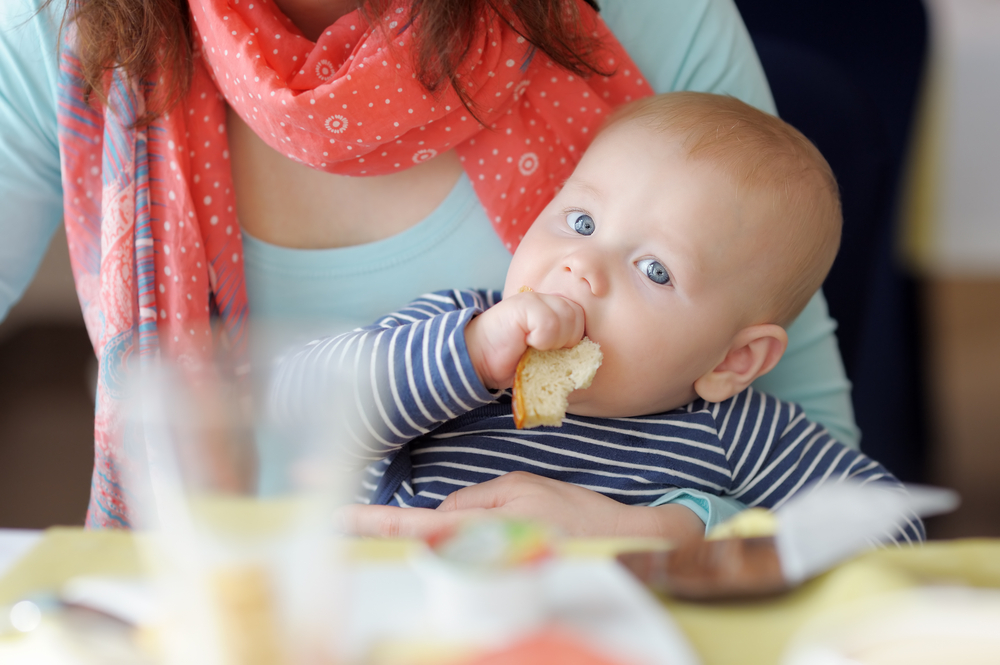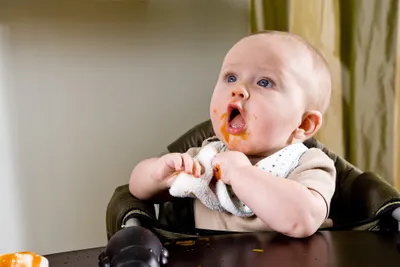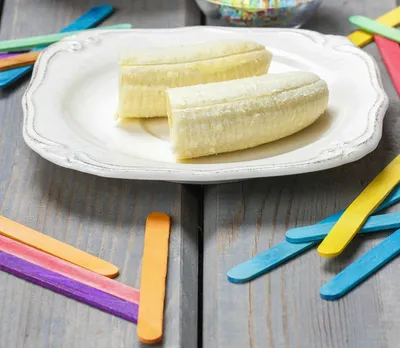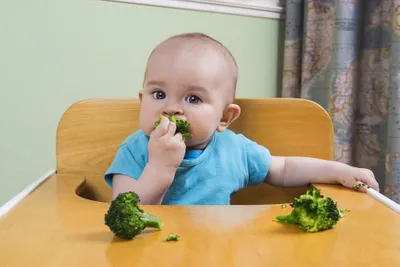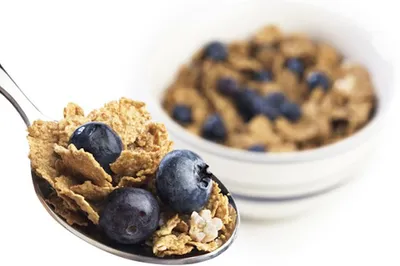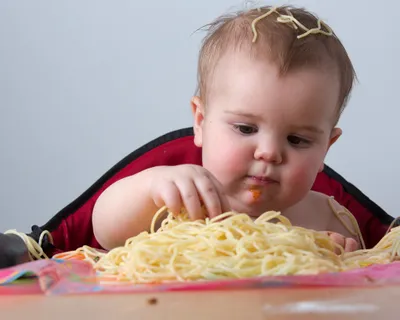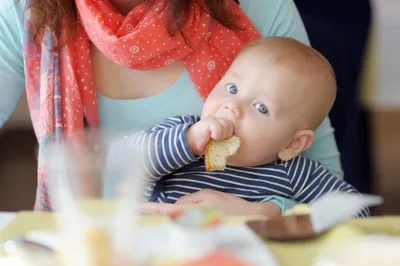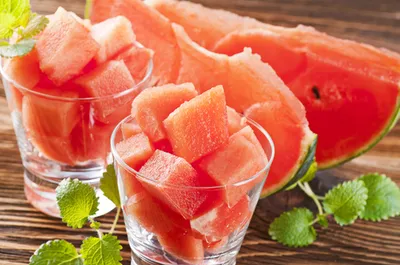While the World Health Organization (WHO) recommends exclusive breastfeeding until your child is the age of 6 months for optimal development, at some point around then your baby will likely start gravitating towards solid foods and want to cut their teeth (literally).
There are two camps when it comes to introducing babies to solid foods, such as baby-led weaning (which is letting your infant feed themself solid foods from your plate), and puree (which is basically mush and helps ease babies toward more challenging textures). Here are 7 table foods that are relatively safe and healthy for junior to try. Remember to supervise your baby at all times during feeding and consult a pediatrician if you’re not sure about their diet.
1. Baby Carrots
Carrots offer a significant array of vitamins including Vitamin C, B6, Iron, and Vitamin A, the latter giving carrots their reputation for maintaining eye health. Baby carrots are relatively easy to infants to handle, if they are cooked to a consistency that allows you to easily break them apart with your finger.
While you don’t have to mash the carrots into little bits, it’s wise to make sure the portions are small enough so they don’t pose a choking hazard. That could mean cutting the carrots into smaller sections, and placing them on the baby’s highchair a few at a time so they don’t get overwhelmed.
2. Bananas
Bananas have been called the perfect food, at least by those who sell them. But there could be some truth to that claim, as bananas are loaded with goodness including potassium, Vitamin C, Vitamin B6 and much more. The Mayo Clinic also notes that bananas are a good source of prebiotics that maintain healthy digestion.
Of course, for baby you’ll want to scrap the skin altogether so they don’t try to take a bite out of it, and cut it into smaller portions that are easy to swallow. Another trick is to gently push on the top of the banana so it splits into 3-pieces, making it easier for your baby to hold it while they decide if they want to take a bite.
3. Broccoli
Kids tend to form an aversion to broccoli later in childhood, so letting them try it when they’re very young is a good time to get them used to it. Broccoli may not be the most exciting food to some, but it is rich in Vitamin C and soluble fiber (the latter which can help babies eliminate waste more easily).
However, many experts say that introducing broccoli to a baby at 6-months is too early. Most agree that 8-10 months is better for them as it won’t produce as much gas at that age. One way some parents deal with this excess gas is to do away with the stems before feeding their child.
4. Cereal
We’re not suggesting you give your baby sugar-coated cereal, but instead cereal that is high in fiber and nutrients (and low in sugar) that they can handle. Rice cereal is a good option for infants that is easily mixed with formula or breast milk to make it easier to digest.
Mayo Clinic suggests that after a while your baby can graduate to cereal with less milk and with fruits that are pureed. While it may be counter-intuitive (or messy), let your baby wield the spoon to increase their skills finding their own mouth. The clinic said using different fruits and vegetables in small amounts could determine any food allergies.
5. Pasta
Have you ever seen a photo of a baby stuffing his or her face with a pile of pasta, with sauce covering their entire face and bib? Well, grab your camera, because your baby will likely look the same when it dives into a plate of spaghetti.
Not only is pasta wholesome, filling and relatively inexpensive, it also comes in many forms that are finger-friendly. However, if you’re making a pot of pasta for the family, make sure you cut the pasta into smaller bits. If your baby ends up missing their mouth with the pasta, they’ll likely love the sauce, which is also healthy.
6. Bread (Toast)
Good old-fashioned toasted bread is a staple in many households, and you can be sure your baby will bite (or gum) into it with eagerness. The University of Michigan Health System suggests cutting off the crusts and cutting the bread into smaller pieces rather than dropping a slice of toast in front of them.
The university said to avoid white bread as it’s not as healthy as other breads and can form “pasty globs” in your baby’s mouth that are tough to swallow. French toast without the egg yolk is another finger food on the university’s safe list of foods to let your baby try.
7. Watermelon
Watermelon is mostly water (about 90 per cent), but has a surprisingly high amount of essential vitamins and nutrients including Vitamins A, D, C, B6, as well as iron and magnesium. This makes it an ideal snack for a baby who can pick up small pieces and chew into the soft texture.
While some experts say melons can cause rashes in some infants, they still tout the benefits and say it can be introduced as early as 6-months. Consider other types of melons that are baby-friendly too such as cantaloupe (you may want to wait a bit longer to offer cantaloupe, around 8 months). Remember to remove the seeds in all types of melons before handing it to your child to avoid choking hazards.
